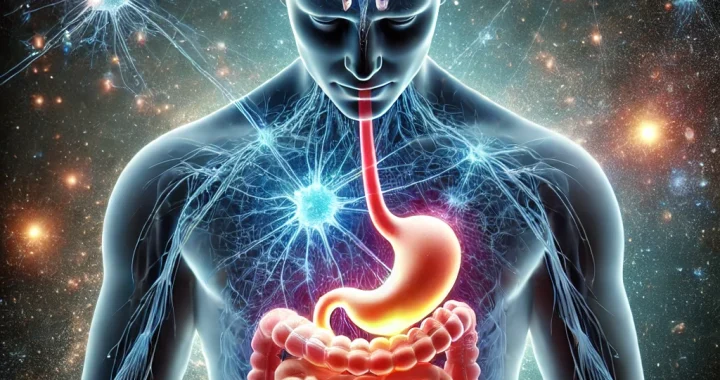
Have you ever tried to make some kind of change in your life, only to fall right back into old patterns? You’re definitely not alone. Pursuing personal goals can sometimes feel overwhelming and downright impossible – that is, until you understand how to actually work with your mind and not against it.
This article brings you powerful insights from behavioural psychology to help you begin to build the habits that have the power to transform dreams into reality.
Why Understanding your physiology Matters

The way we act isn’t random at all, it’s rooted in how our minds work. Recent breakthroughs in neuroscience and psychology reveal that around 95% of our decisions happen unconsciously.
When you understand the forces actually driving your behaviour, you can gain the ability to shift them with intention.
I’m not denying that life is not messy, nature is our greatest example of this, chaos and order have always been two opposing elements, but both are necessary to maintain balance. The same goes for the way we conduct our lives, motivation comes and goes and willpower has its limits, so fighting yourself is futile – in fact, it’s about working smarter by using habits as the foundation for meaningful, long-lasting change.
Start With Your Why
Before diving into the “how,” let’s make this real. What is something you immediately want to change or achieve? Think of a goal that lights you up but feels just out of reach.
For example:
-
Are you craving freedom from your phone, wishing you could spend more time being present with loved ones?
-
Do you want to finally commit to your fitness journey and feel stronger in your body?
-
Are you eager to read more, learn more, and grow more?
Whatever your goal, the path to achieving it starts with action.
Action requires change – and change? That’s all about behaviour.
The Two Drivers of Behaviour

Behavioural psychology teaches us there are two core drivers behind every action: Motivation and Ability.
Let me break them down.
1. Motivation: The Spark
Motivation is your desire to achieve a goal. It’s what gets you out of bed in the morning or gives you that initial burst of energy to start something new.
For example:
-
If you deeply want to quit smoking because you value your health, you’re more likely to succeed.
-
If you’re genuinely excited about writing your novel, you’ll prioritise time to work on it.
Yet here’s the challenge: motivation is not at all reliable. It’s vulnerable to mood swings, stress and even the weather.
Just one bad day, a tempting distraction, or a single weak moment of thought “I’m never going to change” can be enough to derail your best intentions.
2. Ability: The Path of Least Resistance
Ability is about how easy or hard it is to take action. The simpler the behaviour, the more likely you are to follow through. Think about this:
-
If delicious treats are within arm’s reach, you’ll probably eat one. If they’re on the top shelf, with a lid on, you might skip them.
-
If you want to exercise, having your gym clothes laid out the night before makes it far easier to get started.
The key insight? You don’t have to rely solely on motivation.
By focusing on ability – making actions easier – you actually set yourself up for success.

Goals Are Great, but Habits Win the Game
“While goals give you direction, habits are what keep you moving forward, even when motivation fades.”
Here’s the truth: Goals are OUTCOMES.
Habits are the SYSTEMS that make them happen.
While goals give you direction, habits are what keep you moving forward, even when motivation fades.
Examples:
-
Goal: Spend less time scrolling social media.
Habit: Only check social media at 8 AM and 8 PM for 15 minutes. -
Goal: Stay connected with friends.
Habit: Send one text or make one call every Saturday morning. -
Goal: Read more books.
Habit: Read 5 pages every night before bed. -
Goal: Build a workout routine.
Habit: Do 10 push-ups every time you brush your teeth.
Small habits may seem insignificant, but they compound over time, creating remarkable transformations.
How to Build Life-Changing Habits
Ready to move from inspiration to action? Here’s how to create habits that stick:
1. Start Small and Stay Consistent
Massive changes can feel daunting. Instead, start with something so tiny it feels almost too easy. Want to start running? Begin with a 2-minute jog. Once it feels natural, build on it. Small steps build momentum.
2. Anchor Your Habit to What You Already Do
Your brain loves patterns. By connecting a new habit to an existing behaviour, you create a mental shortcut.
For example:
-
After making your morning coffee, journal for 2 minutes.
-
After brushing your teeth, floss one tooth (yes, just one to start!).
3. Write It Down
There’s power in putting your intentions on paper. Your mind seeks consistency, so writing down your habit reinforces your commitment.
Example:
“Every time I finish lunch, I will take a 5-minute walk.”
4. Bring in Accountability
Share your habit with someone who will check in on your progress. Knowing someone else cares about your follow-through can be a game-changer. For example, tell a friend, “I’m committing to meditating for 5 minutes a day – ask me how it’s going next week.”
Time to Take Control
Now it’s your turn.
Use this simple formula to create your habit:
Every time I [existing behaviour], I will [new habit].
Some ideas to spark inspiration:
-
Every time I start my car, I will take three deep breaths.
-
Every time I hang up a call, I will drink a glass of water.
-
Every time I open my laptop, I will write one sentence for my project.
Commit to practicing your habit for 30 days. Over time, it will become as effortless as tying your shoelaces.
Cheat Sheet: 10 Takeaways for Success
-
Most of your behaviour runs on autopilot.
-
Change happens when you focus on both motivation (the spark) and ability (the ease).
-
Motivation isn’t always reliable, and that’s okay.
-
Habits are the key to sustainable change, not just goals.
-
Start with small, specific habits that feel manageable.
-
Anchor new habits to existing routines for faster implementation.
-
Write your habits down to strengthen commitment.
-
Share your habit with someone who will hold you accountable.
-
Practice consistently for 30 days to make your habit automatic.
-
Small, intentional actions lead to profound transformation over time.
Relevant Resources
These some of the books which have influenced my own journey and are very much game-changers:
-
Nir Eyal – Hooked: How to Build Habit-Forming Products
-
BJ Fogg – Tiny Habits: The Small Changes That Change Everything
-
Charles Duhigg – The Power of Habit: Why We Do What We Do in Life and Business
-
Daniel Pink – Drive: The Surprising Truth About What Motivates Us
-
Daniel Kahneman – Thinking, Fast and Slow
Your journey to change really doesn’t have to feel like a battle, I know because I’ve been there too.
When you shift your focus from outcomes to SYSTEMS and from willpower to STRATEGY, you will unlock the power to create a life of more flow and alignment.
MAKE A DECISION AND STICK TO IT.
I know you can do this!
With Love,
Allegra Lite




